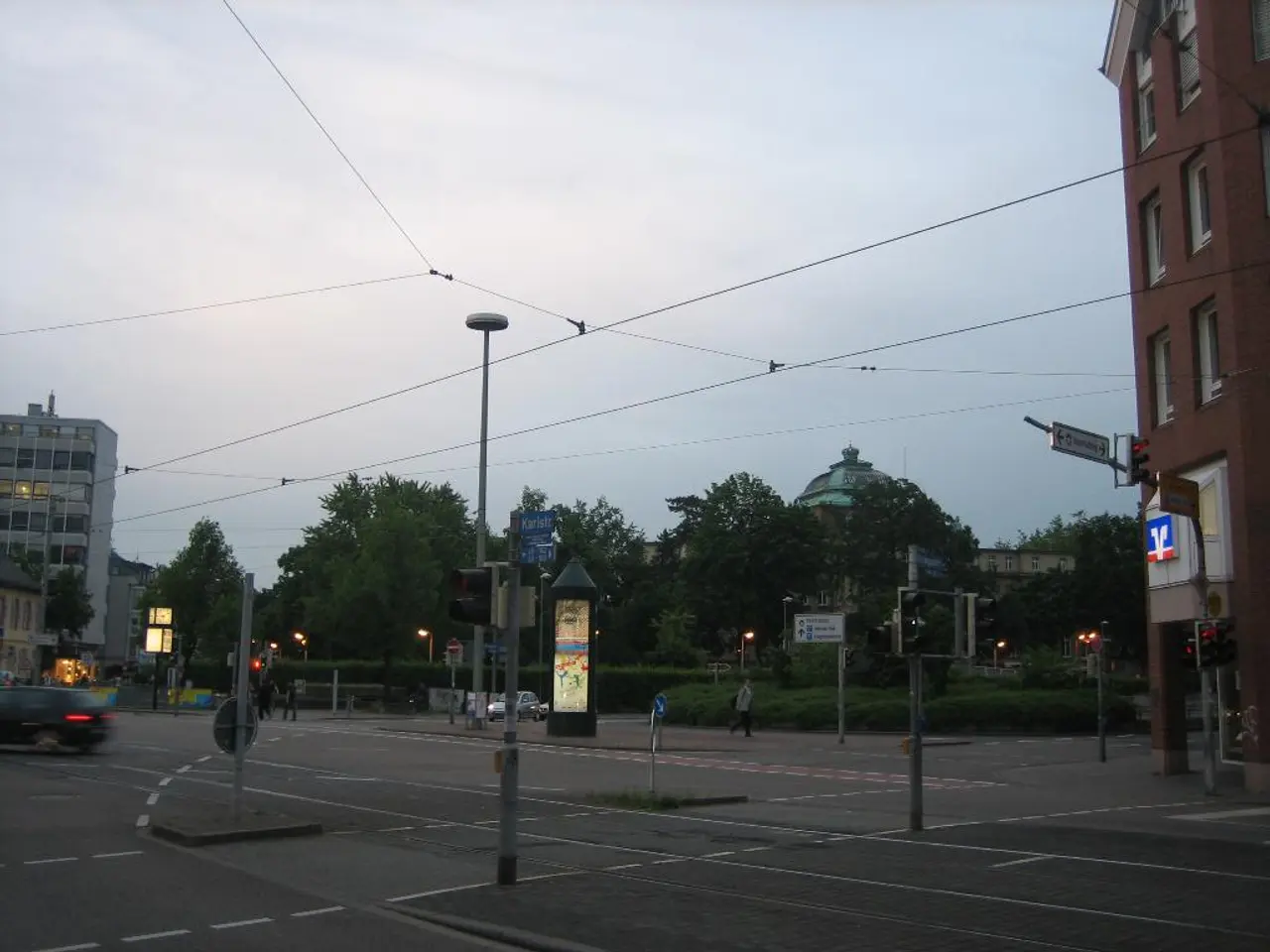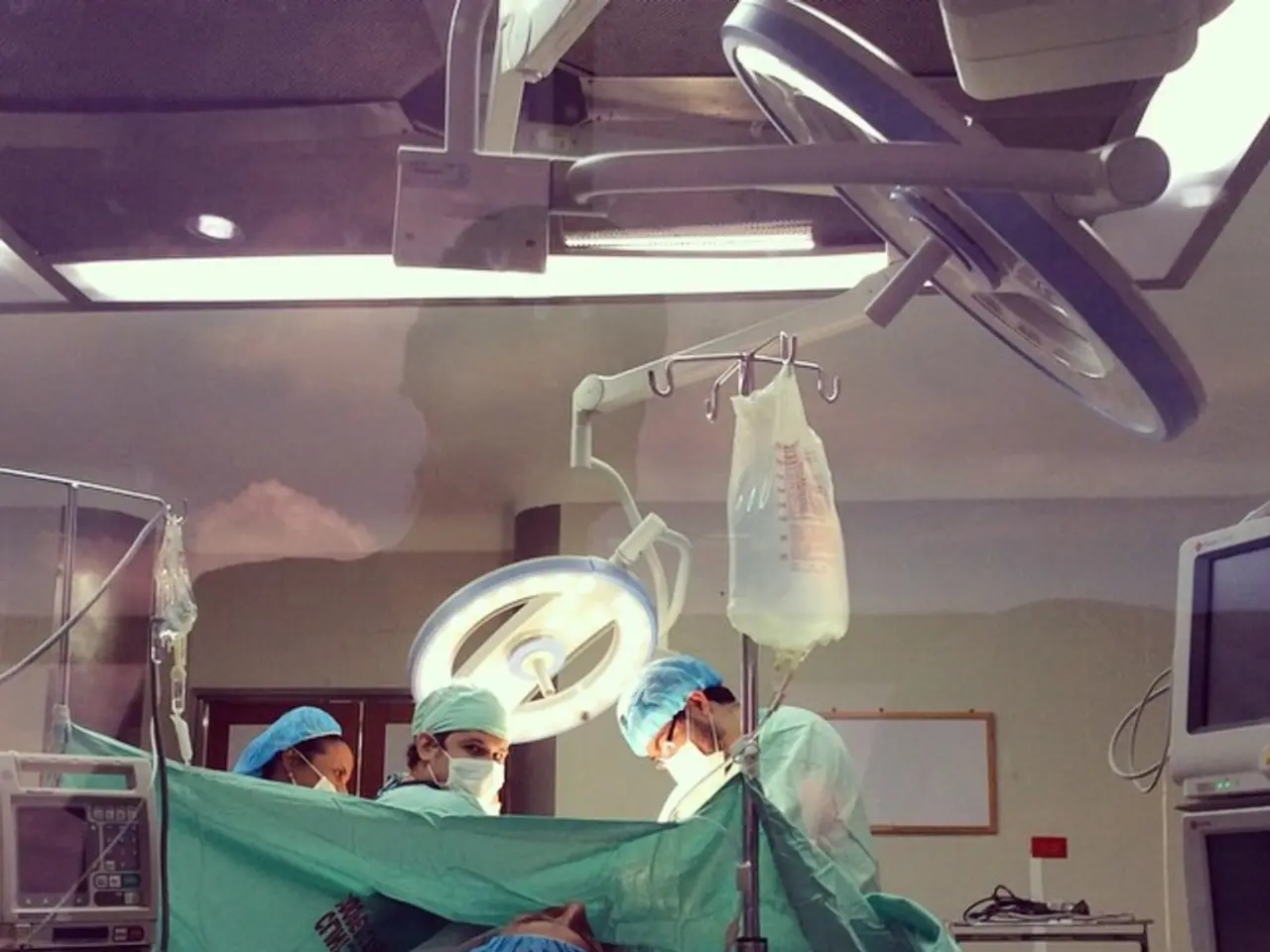Political Tension Escalates in Saxony Over Polish Border Regulations - Unrest in Saxony due to disputes over Polish border inspections
In a move aimed at addressing the surge in irregular migration and enhancing border security, Poland has temporarily reinstated border controls with Germany and Lithuania, effective from July 7, 2025. This decision is expected to have significant impacts on goods traffic, commuter flows, and neighborly relations, particularly in regions like Görlitz and Zittau, Saxony.
The introduction of border checks is likely to cause delays at major crossing points, affecting freight transporters. This could lead to increased delivery times and costs, potentially impacting businesses reliant on timely shipments. The region's economy, which heavily depends on cross-border trade, may experience economic strain due to these delays and additional costs associated with the checks.
Commuters traveling between Poland and Germany will face longer travel times due to the reinstated border controls. This could particularly affect residents in border regions like Görlitz and Zittau, who frequently cross the border for work or personal reasons. The increased travel time and potential queues at border crossings may discourage some commuters, potentially reducing the mobility of people in these regions.
The implementation of border controls may strain relations between Poland and Germany, as well as with Lithuania, due to the perceived necessity of these measures. This could lead to diplomatic tensions, particularly if neighboring countries feel that these controls are not justified or are overly restrictive. However, both Polish Prime Minister Donald Tusk and German Chancellor Friedrich Merz have expressed a desire to collaborate on addressing migration challenges, which might mitigate some of the negative impacts on relations.
In the regions of Görlitz and Zittau, these changes could lead to increased frustration among residents who rely on smooth cross-border interactions. The economic and social impacts will depend on how effectively authorities manage the border checks to minimize disruptions while addressing security concerns.
For the eastern Saxon crafts sector, it is of central importance that border traffic in the Germany-Poland-Czech Republic triangle runs smoothly. The German Trade Union Confederation (DGB) is critical of stationary border controls, arguing that they are detrimental to employees. The Kristall Hotel in Weißwasser, which employs eight Polish female employees, making up about 40% of the staff, who work in room service and the kitchen, hopes for continued minimal restrictions to avoid staffing issues.
If these temporary measures are seen as effective, they could lead to a more permanent strengthening of border controls, potentially altering the nature of cross-border interactions in the region. The move could also influence broader EU migration policies, as it highlights the challenges faced by member states in managing external borders and the need for coordinated solutions. A swift de-escalation of the situation is needed, according to DGB Vice President Daniela Kolbe, to avoid long-term border security measures that could have strong impacts on border commuters, the regional economy, and the internal market.
The controversies surrounding the reinstated border controls could lead to debates in the community and general-news sectors, as citizens and policymakers evaluate their implications on border security, economics, and international relations. Meanwhile, sports leagues and clubs may find it challenging to manage teams with transnational rosters, given the potential complications at border checkpoints.






